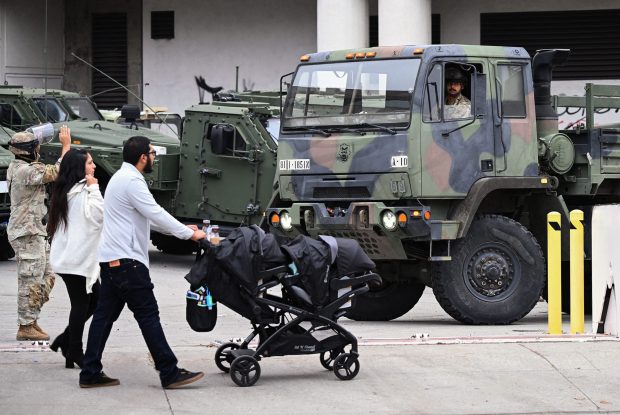Editor’s note: This is the fourth op-ed in a series about cities and sustainability.
The unifying message in my series on cities and sustainability has been that cities, in order to grow and thrive, have had to wage war on nature and hence are the primary drivers of environmental degradation and human-caused climate change. For this reason — particularly as the human population increases globally and more people move to metropolitan areas for a better life — cities must play the chief role in solving the problems of climate change.
Cities and their elites have historically been parasitic on not just nature but also on the expanses of the world populated by rural people. Such urban-rural dynamics explain the challenges global actors face in addressing the cascading effects of climate change and ecosystem collapse.
They also explain the polarization of urban and rural dwellers across the globe. Divisions between these groups have become intractably rooted in our politics at precisely the moment when nations need to cooperate with each other.
Research probing the psychology of our times reveals fascinating insights about these urban-rural dynamics. First, let’s consider cities. In the 2023 study “Continuities and discontinuities in the cultural evolution of global consciousness,” psychologists from multiple countries examined pro-social global consciousness, characterized by a forward-looking concern for protecting the environment and public health and an openness to multicultural difference. People with high levels of pro-social global consciousness are typically found in urban centers: They are usually younger, wealthier and better-educated and have a higher status than their rural counterparts.
Urban elites with this global consciousness face significant challenges, however. First, global consciousness expands where cooperation, trust and the rule of law clearly help individuals to survive and thrive as members of a community. However, pro-social individuals will always be vulnerable in environments and situations in which selfish behavior leads to advantages, inspiring cynicism and corroding trust.
Second, urban elites tend to be politically liberal. They are prepared to support policies that promote long-term global survival benefits for human communities and natural environments. At the same time, the general impression that outsiders have is that these elites are dismissive and contemptuous of their poor cousins in the hinterlands, indifferent to the systemic effects of their consumption habits on distant populations and ignorant of exploiting nature in order to survive and thrive.
Which brings us to rural populations. In rural America, rancid levels of grievance and anger have reinforced reactionary instincts already baked into these less populated regions of the United States. If pro-social urban dwellers are optimistically forward-looking and change-oriented, their rural counterparts are traditionally backward-looking and change-resistant. This has likely always been true. But now, rural dwellers are looking for payback.
In a fascinating 2020 study titled “Some people just want to watch the world burn,” an international group of researchers used survey data from the United States, Canada, the United Kingdom and Australia to measure a “need for chaos” among different segments in these nations. The authors conclude that the desire for disruptive forces is characteristic of individuals and groups that see themselves as economically and culturally marginalized and devalued by ruling elites.
These people embrace chaos — “watching the world burn” — as a way to invert the existing power structure and claim status for themselves. They are emotionally intoxicated by the notion of submission to a “dark lord” who can bring it all crashing down.
In the United States, the authors identify 31% of those surveyed as chaos-seekers, with 5% seeking a high level of chaos, presumably full-on destruction. Who are these people? Some may be left-wing anarchists, but we can safely assume they are largely fervent believers in Donald Trump and vastly overrepresented in the rural regions that are the base of Trump’s support.
These supporters are often younger white men without college degrees who are part of a downwardly mobile lower middle class without prospects. They get their information from far-right media and social media rich with tropes and memes about the depravity of cities. They associate urban hubs with educated globalist elites who have hoovered up the economic gains of the previous 50 years while denying its fruits to everyone else.
When it comes to climate change, the environment and the human relationship with the natural world, chaos-seekers present as science deniers. They dismiss the warming of the planet as fearmongering that they believe is about stripping ordinary people of their freedoms.
Chaos-seekers are culturally at the opposite end of the spectrum from pro-social, globally conscious urban elites. But they can see how their own world has been hollowed out to serve the lifestyles of others living far away.
They are fueled by rage and resentment about what they believe has been taken from them by an overly entitled group of elites. And they will be more than happy to burn down everything if the pain they inflict on these elites equals or exceeds their own.
Peter Schwartz writes at the broad intersection of philosophy, politics, history and religion. He publishes the Wikidworld newsletter on Substack.



